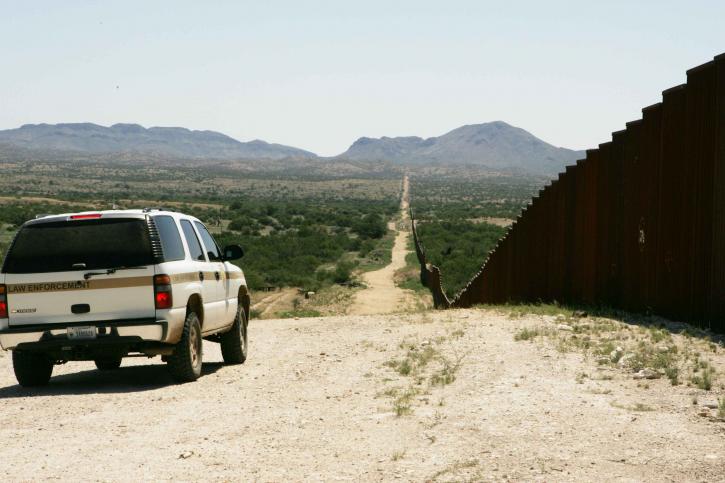In its complaint, the A.C.L.U. claims that Texas S.B. 4 usurps federal power by delegating immigration authorities to state-level courts and law enforcement.
Civil rights organizations have filed a lawsuit challenging the constitutionality of a recently-passed Texas law that would let local police and state-level courts arrest and deport undocumented immigrants.
According to CBS News, the lawsuit was filed in an Austin-based federal court on Tuesday. In their complaint, attorneys for the American Civil Liberties Union and the Texas Civil Rights Project claim that the provisions of S.B. 4 are unconstitutional, usurping the federal government’s exclusive authority over borders and immigration enforcement.
Together, the A.C.L.U., its partners, and three named plaintiffs—El Paso County, and two immigrant aid organizations—are seeking a court order preventing enforcement of the bill, which is expected to take effect in March.
“S.B. 4 creates a new state system to regulate immigration that completely bypasses and conflicts with the federal system,” the lawsuit states.
The complaint, adds CBS News, lists the head of the Texas Department of Safety as a defendant.
Texas Gov. Greg Abbott has since defended the necessity of the bill, saying that the Biden administration has “refused” to enforce federal immigration laws across the southern frontier.
“President Biden has repeatedly refused to enforce federal immigration laws already on the books and do hi job to secure the border,” Abbott said in a statement, publicized shortly after the lawsuit was filed on Tuesday. “In his absence, Texas has the constitutional authority to secure our border through historic laws like S.B. 4.”
“Texas will take this fight all the way to the U.S. Supreme Court if necessary to protect Texans from President Biden’s dangerous open border policies,” he said. “The goal of Senate Bill 4 is to stop the tidal wave of illegal entry into Texas.”
But the A.C.L.U. and its partners have raised concerns that Texas is unequipped and unprepared to enforce immigration law. The lawsuit, for instance, notes that S.B. 4 has no provisions to fund or mandate training for public safety officials now tasked with making critical determinations about a migrant’s legal status and rights.

“There is no U.S. federal analogue to a lone officer in their own discretion escorting someone to the border and saying get out,” said David Donatti, a senior staff attorney with the American Civil Liberties Union of Texas. “That is a very scary prospect that is categorically different from what the federal government does.”
“In addition to that, in the federal system, people would be able to present their claims to an immigration officers and an immigration judge,” Donatti told ABC News.
Several of the name plaintiffs also allege that they will suffer irreparable harm if S.B. 4 is allowed to take effect.
“Given the number of anticipated arrests, [El Paso County] will incur nearly $24 million per year in additional costs to simply house these additional defendants,” the lawsuit says. “The county estimates it will need to authorize and spend a further $162 million to build additional jail and bed space.”
Immigrant rights organizations have also protested the impending necessity of having to overhaul longstanding procedures designed to advocate immigrant interests in federal court.
“In intention or effect, the state will preclude the communities Las Americas serves from ever coming into contact with the federal immigration process. To continue to pursue its mission, Las Americas will need to develop an entirely new system of tracking, counseling, and representing individuals held in state and county jails and prisons to ensure that they are screened and advised of their eligibility for federal immigration relief, and are assisted in applying for relief,” the lawsuit says.
ABC News notes that liberal Texas lawmakers had questioned the wisdom of placing immigration enforcement powers in the hands of the state-level officers. In a letter to U.S. Attorney General Merrick Garland, Rep. Joaquin Castro (D-Texas) and other members of the Congressional Hispanic Caucus asked the Justice Department to intervene before the law takes effect on March 5, 2024.
“This bill is set to be the most extreme anti-immigrant state bill in the United States,” they wrote. “It is clearly preempted by federal law and when it goes into effect will likely result in racial profiling, significant due process violations, and unlawful arrests of citizens, lawful permanent residents, and others.”
Sources
ACLU files lawsuit challenging new Texas law that authorizes police to arrest migrants
Civil rights groups file federal lawsuit against new Texas immigration law SB 4


Join the conversation!